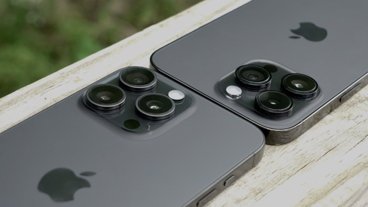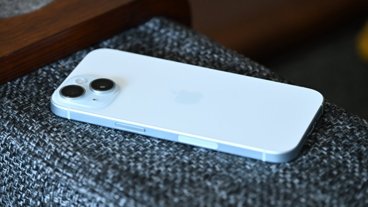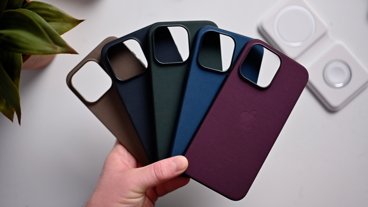First Google Android phone sighting reveals awkward iPhone rival
The first smartphone based on Google's Android mobile platform could hit the U.S. market as early as October, according to new reports, but a video of the handset leaked on the Internet reveals a device which lacks the elegance that's already drawn millions to Apple's iPhone.
It's expected to be the only Android phone available in the U.S. this year and will be sold exclusively through T-Mobile, the nation’s No. 4 wireless carrier. A video (below) of the supposed device making the rounds on the Internet is said to match the one seen by the Times' sources, confirming its authenticity.
Like the iPhone, the Dream has a full touch-screen and will be able to run a slew of applications written by third-party developers for the open-source Android operating system. Conversely, it will also feature a physical "full five-row keyboard" that's exposed by sliding the display component upwards, mimicking the functionality of T-Mobile's Sidekick handset.
While the Dream is "apparently a hot item to show off in Google's cafeterias these days," those familiar with the device describe it as "big and bulky," and nowhere near as sleek as iPhone that's forever altered the landscape of the mobile industry. The Android software itself is similarly not up to par with standards set by Apple, leaving it feeling "less-elegant, less-user-friendly" just months before its slated to be unleashed into the wild.
Still, the Dream is just one of "several devices" Google is testing with its new mobile software, offering hope that other smartphone makers will be able to compensate for the inadequacies of the initial HTC handset when they begin rolling out their Android phones sometime next year. The more pressing issue appears to be whether Google is adequately prepared to provide its ring of developers with the support and expertise they need to go head-to-head with an already thriving fleet of software makers that have hitched onto Apple's mobile platform.
Some early Android supporters have already expressed frustration with the company for favoring a small subset of developers with advance releases of Android's Software Developer Kit, exposing them to newer features and bug fixes ahead of the general community. Meanwhile, those carriers and hardware manufacturers that do have access to the latest Android codebase haven't experienced a clear path to success either.
Among their complaints have been language translation problems with software and an overall lack of support from Google, whose emphasis on the anticipated launch of the Dream through T-Mobile has crowded out other carrier's attempts to get help launching their own array of Android devices.
 Kasper Jade
Kasper Jade










 Marko Zivkovic
Marko Zivkovic
 Amber Neely
Amber Neely
 Christine McKee
Christine McKee
 Malcolm Owen
Malcolm Owen
 Mike Wuerthele and Malcolm Owen
Mike Wuerthele and Malcolm Owen

 William Gallagher
William Gallagher








